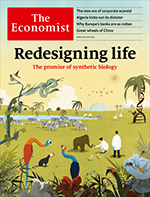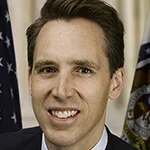 |
These are glorious days for US corporate crisis managers due to the “bad smell hanging over a number of powerful companies,” according to The Economist of April 6.
While the magazine says it’s tempting to blame bad luck, human error, negligence or criminality for corporate scandals, other factors are in play.
The rash of high-profile scandals include Boeing (claims it loaded its 737 Max planes with lousy software), Wells Fargo (fake accounts), Monsanto (California jury rules it failed to warn of cancer-causing agents in its weed killer), Equifax (personal data theft), Purdue Pharma (Oxycontin maker) and McKesson (opioid distributor).
And American companies are more scandal-plagued than their cousins "across the pond." The Economist reports the market value of US firms caught in scandal since 2016 is $1.5T, compared to less than $600B for European firms.
While US scandals earn headlines, trigger outrage on social media and calls for reforms in Congress, there is little financial cost for the companies involved.
So what’s up? American capitalism is simply out-of-kilter.
While American companies “test the boundaries of what is possible and permissible,” the traditional corporate restraining forces (regulation, competition and litigation) have been weakened.
The referees have left the playing field.
On regulation: The Federal Aviation Administration allows Boeing to inspect itself, while the Food & Drug Administration allows opioids to be sold to the masses.
"Criminal cases leading to jail terms for top executives are as rare as socialists at Goldman Sachs," observes The Economist. Class action lawyers complain financial penalties have shrunk to a pittance vis-à-vis the value of companies. A threat of a multi-billion-dollar settlement ‘doesn’t move the needle anymore,” said a lawyer.
As for competition, forget about it. Boeing rules the skies as Airbus lacks spare capacity. Social media giants like Facebook and Google pretty much stand alone. “Pesticides and herbicides, credit-checking, drug distribution and drug retailing have grown more concentrated, too,” notes the magazine.
The Economist hopes the rash of crises may prompt corporate soul-searching because if it doesn’t public confidence in capitalism may suffer another blow.
PR may have a major role to play in restoring the confidence in capitalism, but that won't happen until regulatory, legal and competitive corporate watchdogs learn how to bite once again.


 Republican tough guys Josh Hawley and Tom Cotton want Biden to send the National Guard to Columbia University to put an end to student protests... Bernie blasts Bibi for insulting America's intelligence by equating criticism of Israel's government with antisemitism... German court convicts former financial PR exec who claims he wasn't aware that trading on tips is illegal.
Republican tough guys Josh Hawley and Tom Cotton want Biden to send the National Guard to Columbia University to put an end to student protests... Bernie blasts Bibi for insulting America's intelligence by equating criticism of Israel's government with antisemitism... German court convicts former financial PR exec who claims he wasn't aware that trading on tips is illegal.  Southern governors claim they know what's best for their working class, and it's not pay raises... A Ukrainian human rights group played a key role in convincing House Speaker Mike Johnson to hold a vote to send arms to Ukraine, Israel and Taiwan... Trump Media & Technology Group blames short-selling and not lousy outlook for its stock slump.
Southern governors claim they know what's best for their working class, and it's not pay raises... A Ukrainian human rights group played a key role in convincing House Speaker Mike Johnson to hold a vote to send arms to Ukraine, Israel and Taiwan... Trump Media & Technology Group blames short-selling and not lousy outlook for its stock slump. The techniques deployed by OJ Simpson's defense team in the 'trial of the century' served as a harbinger for those used by Donald Trump... People worry about the politicization of medical science just as much as they fret about another pandemic, according to Edelman Trust Barometer... Book bans aren't restricted to red states as deep blue Illinois, Connecticut and Maryland challenged at least 100 titles in 2023.
The techniques deployed by OJ Simpson's defense team in the 'trial of the century' served as a harbinger for those used by Donald Trump... People worry about the politicization of medical science just as much as they fret about another pandemic, according to Edelman Trust Barometer... Book bans aren't restricted to red states as deep blue Illinois, Connecticut and Maryland challenged at least 100 titles in 2023. The NBA, which promotes legalized gambling 24/7, seems more than hypocritical for banning player for placing bets... Diocese of Brooklyn promises to issue press release the next time one of its priests is charged with sexual abuse... Truth Social aspires to be one of Donald Trump's iconic American brands, just like Trump University or Trump Steaks or Trump Ice Cubes.
The NBA, which promotes legalized gambling 24/7, seems more than hypocritical for banning player for placing bets... Diocese of Brooklyn promises to issue press release the next time one of its priests is charged with sexual abuse... Truth Social aspires to be one of Donald Trump's iconic American brands, just like Trump University or Trump Steaks or Trump Ice Cubes. Publicis Groupe CEO Arthur Sadoun puts competition on notice... Macy's throws in the towel as it appoints two directors nominated by its unwanted suitor... The Profile in Wimpery Award goes to the Ford Presidential Foundation for stiffing American hero and former Wyoming Congresswoman Liz Cheney.
Publicis Groupe CEO Arthur Sadoun puts competition on notice... Macy's throws in the towel as it appoints two directors nominated by its unwanted suitor... The Profile in Wimpery Award goes to the Ford Presidential Foundation for stiffing American hero and former Wyoming Congresswoman Liz Cheney.


 Have a comment? Send it to
Have a comment? Send it to 
No comments have been submitted for this story yet.